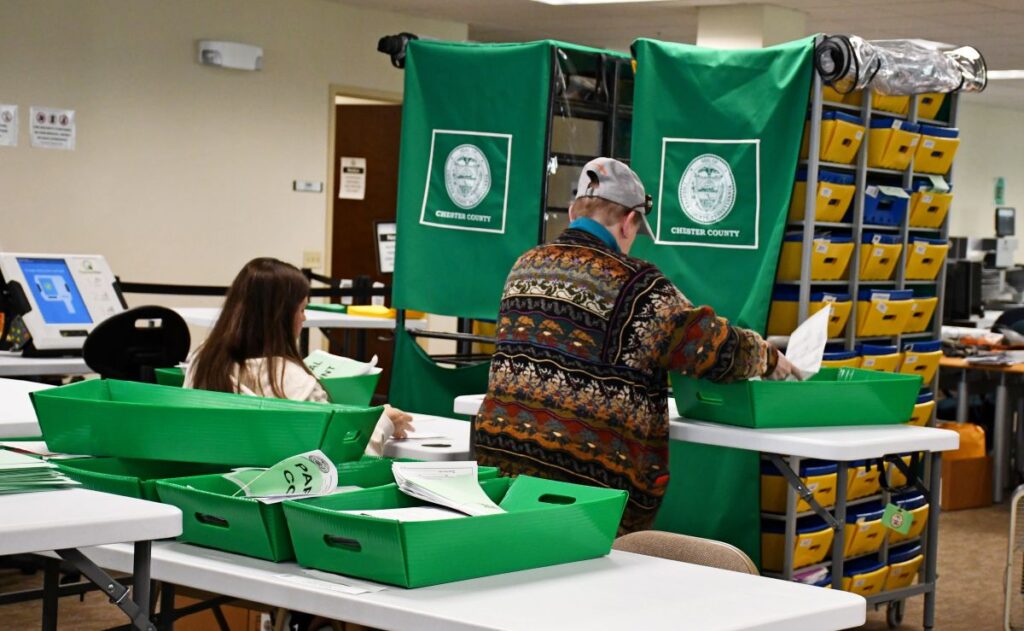Chester County officials are still sorting through 12,100 provisional ballots from Nov. 4 and preparing an inquiry after 75,000 third-party registered voters were not listed in the poll book, leaving results unfinished and many questions about how this happened.
The county Board of Elections remains deep in a legal review of 12,100 provisional ballots cast on Nov. 4, a number large enough to affect close races and public confidence. That review is taking time because provisional ballots require verification against registration records and related affidavits. Officials say the process is being handled methodically, but conservatives and concerned voters see the pace as a signal that stronger safeguards are needed.
At the same time, the board is preparing for an investigation into why 75,000 third-party registered voters were omitted from the poll book on Election Day. Leaving that many names out points to a major breakdown in election operations, whether the cause was software, human error, or vendor failure. From a Republican perspective, this raises obvious questions about accountability and who is responsible for ensuring poll books are accurate before voters arrive.
Provisional ballots exist to protect voters who show up but whose eligibility is unclear at the polling place, yet they also complicate and delay final tallies. Each provisional ballot must be matched to a registration record and evaluated under state law, which is a labor-intensive legal exercise. The concern among many is not just the delay but the system vulnerabilities that allowed so many irregularities to surface.
Election integrity demands a clear paper trail and transparent procedures, and the current situation tests both. Republicans emphasize that verification standards and chain-of-custody protocols should be strict and visible, so citizens can trust outcomes without partisan suspicion. When tens of thousands of names are missing from poll books, calls for an independent review and tighter oversight grow louder.
County officials face legal deadlines to certify results, which creates tension between thoroughness and timeliness. A rushed certification risks errors; an overly slow process fuels political unrest and undermines confidence in the system. Responsible officials need to balance those pressures while keeping the public informed about progress and procedural steps being taken.
Voters who were turned away or forced to use provisional ballots deserve clarity about what happened and whether their votes will count. Republican voices argue that clarity should include a precise explanation of how the poll book omission occurred, who authorized any third-party integrations, and what checks failed. Transparency about vendors, software contracts, and staff training becomes essential when basic election infrastructure appears to have faltered.
The legal review itself will hinge on documentation: registration logs, poll book snapshots, chain-of-custody records for provisional ballots, and affidavits from polling staff and voters. Republicans insist those records be preserved and made available to auditors and, where allowed, public watchdogs to reassure the community. Any discrepancies need a forensic approach so the public can see exactly how ballots and records were handled.
Beyond the immediate fixes, this episode highlights the need for policy changes that prioritize secure, reliable election administration. That could mean stricter vendor vetting, mandatory audits of poll books before Election Day, and clearer lines of responsibility at the county level. Those are practical steps that would reduce the risk of a repeat incident and restore confidence among skeptical voters.
Local leaders must act now to document findings, address procedural failures, and communicate next steps to the public without partisan spin. Republicans urge a firm commitment to reforms that protect the vote and prevent needless doubt about outcomes. The clock is ticking on certification deadlines, but the larger deadline is public trust, which requires prompt, concrete action.



